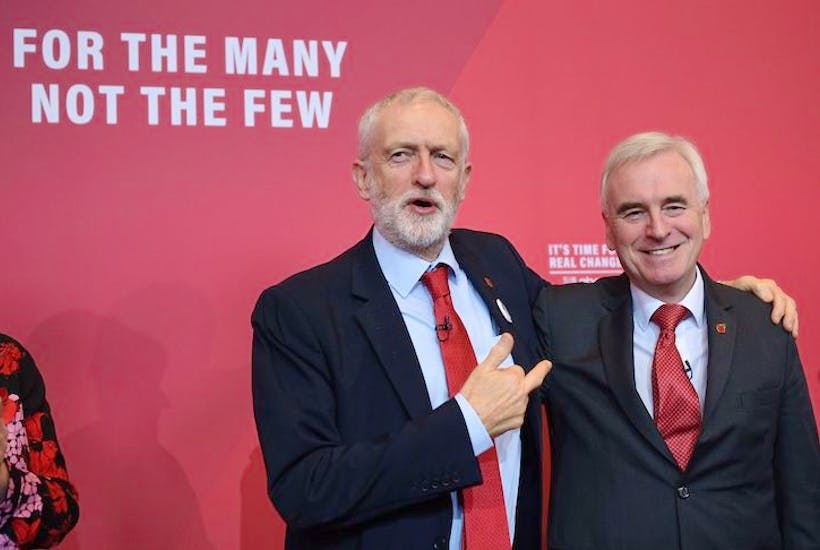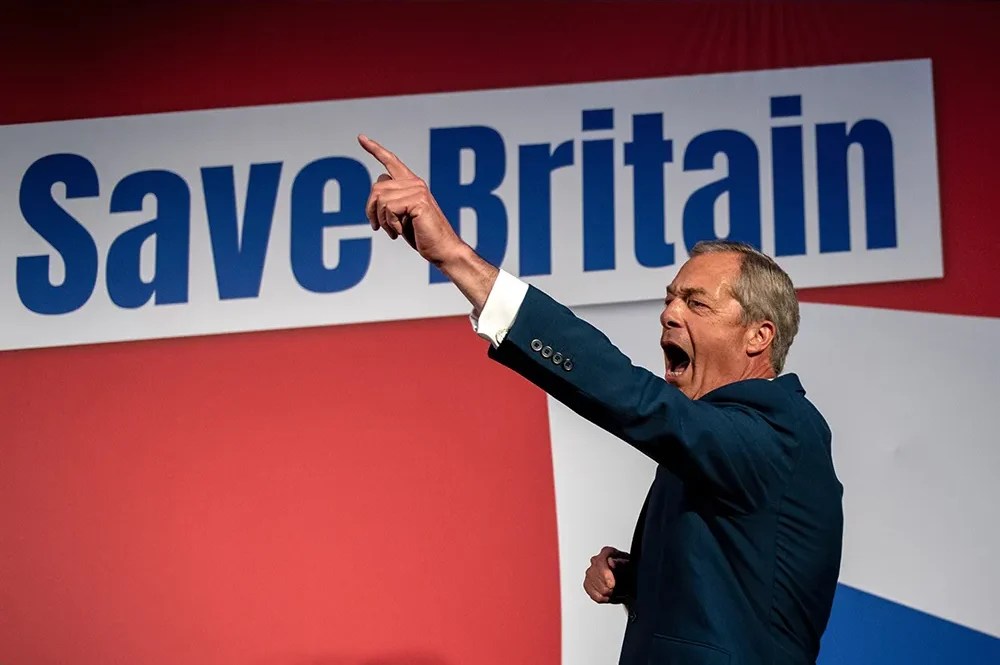Jeremy Corbyn’s Labour party manifesto has made the front of all the British papers today. The response is mixed. While the Daily Mail labels it a ‘Marxist manifesto’ and the Telegraph an ‘£83bn tax blitz on the middles classes’, the Mirror hails it as proof for readers that Corbyn is ‘on your side’. However, the issue for the Labour leader isn’t just that the ideas inside that document — which range from a £11bn windfall tax on the oil industry to a four-day working week to a five percent pay rise for public sector workers — divide opinion, it’s whether those who like what they’re hearing believe Corbyn can actually make these things happen.
During the 2017 snap election campaign, Jeremy Corbyn’s policy proposals — including nationalization — tended individually to prove popular with the public. As former Labour pollster James Morris said on the Coffee House Shots podcast this week, in focus groups the issue tends not to be whether people like the idea of Labour’s plans such as the pledge to give everyone free broadband. Ask a person if they would like something free and they will usually say yes. The issue comes when you then ask how that should be funded — whether the government should be responsible for providing broadband and what the consequences of that are. Generally, there is skepticism about whether or not Labour can deliver what they promise to for the amounts they have said.
The four-day week— detailed in the manifesto as a promise to within a decade ‘reduce average full-time weekly working hours to 32 across the economy, with no loss of pay’ — is a prime example of this. When Jeremy Corbyn mentioned it during the ITV debate on Tuesday, the audience laughed. Conservative MPs out on the doorstep find that it is a policy people are talking about but as a way to say they don’t believe what Corbyn is promising — rather than a reason to vote for him. The idea of working four days instead of five but still earning the same amount fails a basic smell test for some voters.
The Institute for Fiscal Studies’ Paul Johnson has said the idea that Corbyn’s manifesto could be funded by simply taxing businesses and the rich is ‘simply not credible’. But Corbyn’s credibility issue goes beyond expert analysis and to the average voter’s gut instinct. As Professor Sir John Curtice says in today’s Times of London, voters tend to believe Corbyn means well on domestic issues — such as the National Health Service — but are less sure on whether he can go through on his promises. If people don’t believe a politician can deliver it starts to become neither here nor there whether they like the radical ideas they’re hearing.
This article was originally published on The Spectator’s UK website.


























